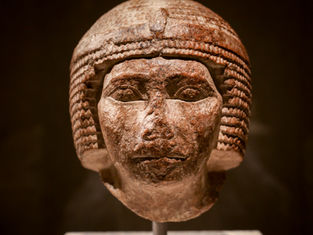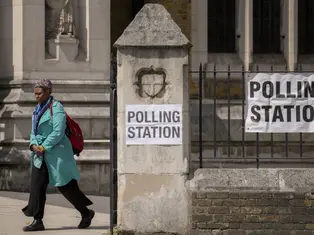top of page
Articles


In the Wake of Colston: Wake Work after Woke Work
What does it mean to defend the dead? To tend to the Black dead and dying: to tend to the Black person, to Black people, always living in the push toward our death? It means work. It is work: hard emotional, physical, and intellectual work that demands vigilant attendance to the needs of the dying, to ease their way, and also to the needs of the living. —Christina Sharpe[1] A world divided into compartments, a motionless, Manicheistic world, a world of statues: the statue o

Jacob Badcock and Jovan Owusu-Nepaul
19 min read


Americanitis: Architecture, Mass Media, White Supremacy
The origins and definition of the word ‘Americanitis’ are opaque at best. It is generally believed to have appeared in medical journals of the late nineteenth century, describing a particular nervous ailment found in the inhabitants of the United States of America. Thought to cause disease, heart attack, nervous exhaustion, and even insanity, Americanitis was seen as a serious threat to the American public. In fact, in 1925, Time Magazine reported that Americanitis was respo

Nicolas Canal Tinius
15 min read


The Space Race and Its Discontents: Hannah Arendt on Space, 1951-63
Introduction Arendt’s account of modernity and The Human Condition (1958)[1] Opening the final section of The Human Condition...

Clare Francis
20 min read


Augustine on Canonical Penance: An Ethic of Criminal Sentencing
Introduction Canonical Penance in the early Church and the modern concept of prison, broadly construed, are both processes of...

Alexander Levy
21 min read


Does the Concept of ‘Spiritual Resistance’ Add to our Understanding of Jewish Life in the Ghettos?
In his seminal 1961 work The Destruction of the European Jews , Raul Hilberg proposed a thesis that sought to explain a perceived lack of...

Nathaniel Rachman
23 min read


Elite Overproduction: An Inside Perspective
1 To become an administrative official in imperial China necessitated following a burdensome path from an early age. To begin with, a...

Jakob Gomolka
10 min read


Patriarchy and Politics: In Conversation with Professor Cynthia Enloe
Well-known for her book Bananas, Beaches and Bases , exposing the embedded systemic and institutionalised patriarchy that is evident not...

Teresa Turkheimer
13 min read


‘Canst thou draw out Leviathan with an hook?’: Job 41 in Hobbes’ Masterpiece
Can you draw out Leviathan with a fishhook, or press down its tongue with a cord? Can you put a rope in its nose, or pierce its jaw with a hook? Will it make many supplications to you? Will it speak soft words to you? Will it make a covenant with you to be taken as your servant forever?[1] * The rich symbolic inner workings of Hobbes’ Leviathan have been much commented on in the centuries since its publication, with most attention being given to its incomparable frontisp

Peter McLaughlin
12 min read


The French Veil Debate: State Insecurity and the Family
The family is often presented as an opponent to the state as the location of power, or as an alternative to state institutions. The 2004...

Mary Osborne
12 min read


Geopolitics and Innovation at Louvre Abu Dhabi: In Conversation with Manuel Rabaté and Dr Souraya Noujaim
Manuel Rabaté is Director of Louvre Abu Dhabi. He has taught Arts & Cultural Management at Paris-Dauphine University and Paris-Sorbonne University Abu Dhabi. He is a Knight of France’s National Order of Merit. Dr Souraya Noujaim is Scientific, Curatorial & Collections Management Director of Louvre Abu Dhabi. She has studied the British Museum’s Arabic weights and measures, and has been Islamic Art History Chair at the École du Louvre. Louvre Abu Dhabi sits at a tense but

Alexander (Sami) Kardos-Nyheim
8 min read


Thus Dunks Zarathustra
It didn’t take long for the backlash against last summer’s enthralling ESPN Michael Jordan documentary The Last Dance to arrive. Before...

Hugo Drochon
5 min read


Ewell in the East (or Not): A Chinese Perspective on Racism in Music Studies
1. Introduction Music theory is white. —Philip Ewell Thus begins Philip Ewell’s article ‘Music Theory and the White Racial Frame’.[1] His...

David Chu
13 min read


The Ecclesiastical Mosaic SYNTERESE (Dedicated to the 520 Occupied Churches of Cyprus)
Fig 1. Returning (detail of SYNTERESE (Father Demosthenes Demosthenous 2020, mosaic)). Akropoli-Strovolos. Courtesy of Father Demosthenes...
Father Demosthenes Demosthenous
15 min read


Performative Activism and the Murder of George Floyd
This piece was written in the direct aftermath of George Floyd’s murder on 25 May 2020. Since then, having also been selected as an...

Chater Paul Jordan
12 min read


A Shift in Political Identity and its Impact on the Rule of Law
A recent study in the United States indicated that the rate of Americans identifying themselves using political terms has almost doubled...

Emily Nicholson, Mishcon de Reya
14 min read


Rethinking Pharaonic Government: Constitutional Lessons from Ancient Egypt
Conventional wisdom tells us that the first civilisation to be governed in a manner comparable to our own was Ancient Greece—the world’s first democracy.[1] Such discourse has contributed to popular belief that earlier civilisations, of which Egypt is probably the best-known example, might be interesting in myriad ways but surely have little to offer scholars of modern government. Egypt, according to established narrative, was an absolute monarchy, where Pharaoh did as he ple

Alexandre Loktionov
15 min read


The Symbiotic Intermingling of Culture, Economics, and Security: A Personal Retrospective
The forging of a life in culture, economics, and security My formative years were marked by my parents’ hopes and dreams that I would...

Adrian Kendry
9 min read


Levelling the Playing Field: Border Carbon Adjustments and Emissions Leakage
Introduction The 2015 Paris Agreement was a pivotal moment in the struggle against climate change. While previous climate agreements...

Callum Winstock
15 min read


Re-Examining the Critical Analysis of Indian Society and the Caste System in Swades: We, the People (2004)
For far too long, Ashutosh Gowariker’s Swades (2004) has maintained its status as an Indian cinema cult classic. It is a film about a...

Richa Kapoor
14 min read


Splendid Isolation or Fish out of Water? Fishing, Brexit, and the Iconography of a Maritime Nation
1. The fish are alright Historically and presently, the United Kingdom has identified and presented itself as a maritime nation.[1] Fisheries, historically a significant source of employment, cultural identity, and economic output, are a vital component of the UK’s seafaring character. Amidst the decline of other British coastal industries, fishing, also in a state of ‘managed decline’,[2] is perhaps the UK’s final remaining material link to this maritime heritage. Our ar

Aadil Siddiqi and Nathan Davies
19 min read


The Cultural Logic of Statues
A statue tumbles and, with an almighty splash, sinks below the water. Those responsible cheer with joy. Onlookers are captured in a range of emotions: confusion, rage, wonder. What is taking place? Is this an anti-historical act of violent vandalism, or the liberating removal of a relic of the colonial era, an enduring reminder of oppression? When Black Lives Matter protesters in Bristol toppled the statue of the merchant and slave trader Edward Colston in June 2020, it was

Jack Graveney
12 min read


We the People? The Conservative National Identity and its Role in American Political Polarisation
Identity drives human agency. Who we consider ourselves and the groups we are part of determines the choices we make. This principle is...

Christopher George
13 min read


Institutions for the Long Run: Taking Future Generations Seriously in Government
Introduction This article sets out the case for taking future generations seriously through our political institutions. We make three central claims. First, future people matter, and political institutions ought to reflect this. We make this case by appealing to the importance of broad political enfranchisement, and then to the more general moral significance of future people. Second, our political institutions do not yet take the interests of future generations sufficientl

Fin Moorhouse and Luca Righetti
26 min read


Egalitarianism and the Neoliberal Work Ethic: In Conversation with Professor Elizabeth Anderson
John Dewey Distinguished University Professor and Arthur F. Thurnau Professor of Philosophy and Women’s Studies at the University of Michigan, Elizabeth Anderson is famously redefining egalitarianism in the field of political philosophy. Conventionally, philosophical debate has imagined the two concepts of equality and freedom to be polar opposites. Anderson has sought to challenge this perception by subordinating the popular egalitarian notion of distributive equality to tha

Teresa Turkheimer
15 min read
bottom of page

